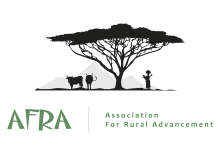Resource information
AFRA is an independent land rights non-governmental organization that works with black rural people in KwaZulu-Natal who were dispossessed and whose land tenure rights remain insecure. As such AFRA engages with the different programs within Land Reform, one of which is the Restitution Program. AFRA works primarily with three claimant groups, the Boschoek claimants, the Dukuduku claimants and the Gongolo claimants, each described briefly below. The three claims present interesting issues around government’s position and approach in terms of public interest issues like the security interests as presented by the Boschoek claim, nature conservation and tourism interests as presented by the Dukuduku claim, and local economic development and tourism interests as presented by the Gongolo claim. All these interests seem to have played, and continue to play themselves out against achieving the ideal of Redress, Social Justice and Reconciliation.
AFRA felt that they were the kinds of restitution claims that would provide insight into the South African land reform programmes ability to achieve what it intended to in the context of rapid transition and development pressures. Working with these communities has allowed the claimant groups and AFRA to identify key problems with the programme of Restitution and advocate for Redress, Social Justice and Reconciliation. There are other projects, which the organization has been involved with that will also be referred to in this paper to illustrate certain points.
The paper will first briefly outline the four main claimant cases referred to, it will then outline a framework for considering the topic and the cases, and then highlight key lessons that emerged which question the ability of the current restitution programme to achieve Redress, Social Justice and Reconciliation. The lessons highlight the narrow and exclusive legal approach being used to provide redress which fails to equip claimants to work with or against more powerful development interests. There is certainly growing frustration and anger amongst claimant communities who evidently feel a sense of betrayal.


